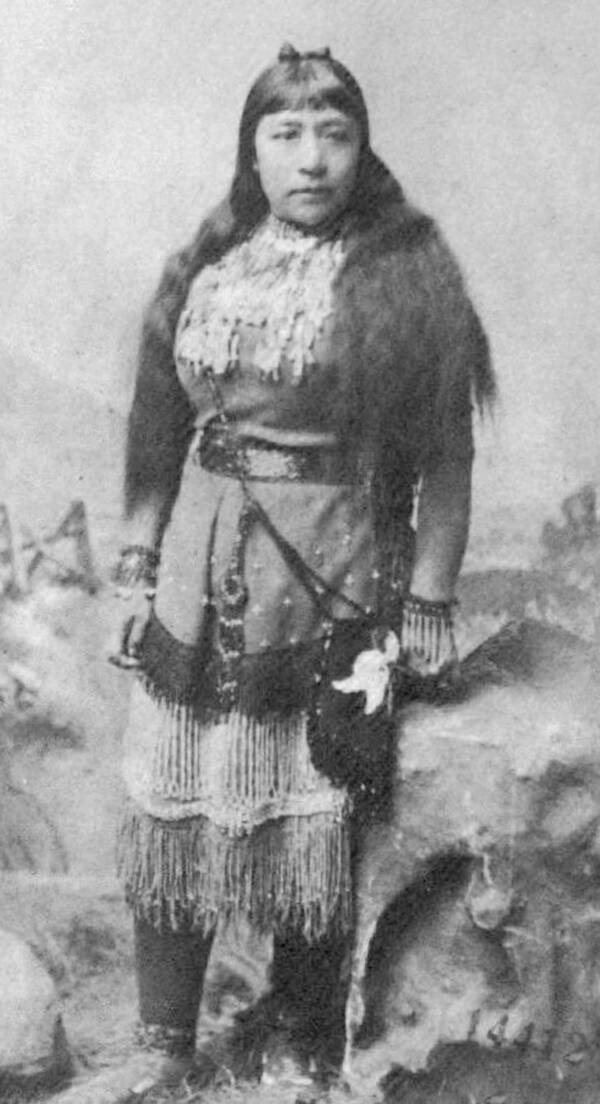Sarah Winnemucca: The Paiute Woman Who Stood Up For Her People

Wikimedia CommonsSarah Winnemucca was the first Native American woman to write an English-language autobiography.
Outraged at how white settlement had devastated her people, Sarah Winnemucca began to speak out. She traveled America in the 1880s and wrote a fiery autobiography called Life Among the Paiutes in 1883.
“For shame! For shame!” Winnemucca wrote. “You dare to cry out Liberty, when you hold us in places against our will, driving us from place to place as if we were beasts.”
Born Thocmetony (Shell Flower) to the Northern Paiute people, Winnemucca spent most of her life straddling the line between the “white” world and the “Native” world. She grew up traveling with her tribe in modern-day Nevada and Oregon, but she later attended a convent school in San Jose, California — until furious white parents forced her to leave.
Afterward, Winnemucca accompanied her family to their new reservation near Pyramid Lake in Nevada. Unfamiliar with the dry landscape — and victims of thefts by government agents who stole their aid money — many Paiutes starved to death. Winnemucca, who had mastered English from an early age, attempted to act as an interpreter for her people.
But it was tough work. Not only did Winnemucca have to work with cruel government agents like William V. Rinehart, but many of her own people grew to distrust her. Meanwhile, things for the Paiutes seemed to get worse and worse. So Winnemucca decided to speak out on their behalf.
Starting in San Francisco, Sarah Winnemucca traveled around the country and spoke her mind. Wearing traditional clothing and billing herself as a “princess,” Winnemucca described the hardships forced upon her people.
“I would be the first Indian woman who ever spoke before white people,” Winnemucca told a reporter, “and they don’t know what the Indians have got to stand sometimes.”
Her fearless activism eventually caught the eye of members of the Transcendentalist movement, who arranged for the publication of her autobiography. Pen in hand, Winnemucca didn’t hold back.
“Since the war of 1860 there have been one hundred and three (103) of my people murdered, and our reservation taken from us; and yet we, who are called blood-seeking savages, are keeping our promises to the government,” Winnemucca thundered. “Oh, my dear good Christian people, how long are you going to stand by and see us suffer at your hands?”
At first, her book seemed like it might make a difference. The president, Rutherford B. Hayes, and the U.S. government as a whole promised to help with reforms. But their words fell flat — and nothing changed.
Winnemucca spent some of her final years teaching at a Paiute school in Nevada before it was shut down due to the Dawes Act, which mandated that Indigenous children be taught in white-run schools. Though she died in 1891, her powerful testament to the plight of her people lives on.





